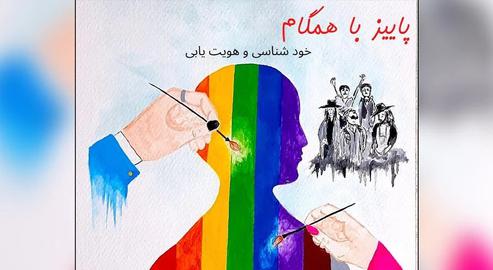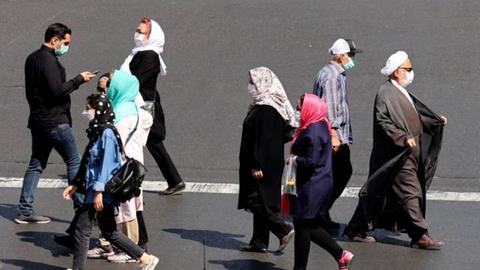In today’s Iran, there is still a dearth of expertise in the medical and psychiatric community on how to care for patients in the LGBT+ community. A lack of awareness of sexual and gender issues, and outdated guidance, mean many Iranian citizens who go to a physician for help end up under greater stress than they started with.
Many doctors and psychiatric specialists in Iran try to support these patients in good faith. But others, influenced by the Islamic Republic’s traditional and hyper-religious conceptions of law and societal roles, carry internal prejudices that impact their dealings with members of the LGBT+ community. This means, in turn, that many Iranians with sexual and gender differences avoid seeking professional help when they need it most.
The advent of social media, and burgeoning online LGBT+ rights activism, has tentatively begun to turn the tide. Issues like depression, anxiety, suicidal ideation and subjection to violence and discrimination blight the lives of many LGBT+ people in Iran, and there is a nascent awareness that this needs to be taken seriously. An array of fledgling online support networks and NGOs now exist with the sole purpose of supporting members of the LGBT+ community in Iran and – perhaps most importantly – making sure they know they’re not alone.
One such group is Hangam, a grassroots organization of volunteers supported by two LGBT+ rights activists. The group aims to improve awareness of LGBT+ issues generally, build a sense of community between LGBT+ Iranians, and equip vulnerable members with the information they’ll need to navigate life and thrive.
Co-founding activist Fars Ziari, told IranWire: “There are a lot of institutions and organizations working in this field. But our goal is to create a movement by LGBT+ people: a safe space for them to interact with each other and talk about their concerns, challenges, and issues that cannot be addressed in the wider community.
“These are people who aren’t usually supported by those around them, and don’t have access to a counsellor. In this private space, they can share their experiences and problems in peace and security, and help each other develop and grow."
Hangam hosts a series of workshops in which small groups of LGBT+ Iranians can talk about their personal experiences. Dorsa, a clinical assistant who has experience of the groups, says: “In smaller spaces with fewer people, they [service users] feel more secure in sharing their personal issues – and their experiences of things that are not accepted in our society. Usually, in larger, more public forums, there’s less room to do this.”
Hamgam also gives LGBT+ Iranians the opportunity to put forward topics for discussion in future sessions, and to take part in light-hearted entertainment events with like-minded people. In doing so, the organization hopes to boost its members’ mental health and fortitude in a challenging environment. This, of course, ought to be the responsibility of the state, but for the time being at least the Islamic Republic does not pay attention to such things.
Related coverage:
Eight Years On, the Trauma Continues for LGBT+ Iranians Detained at Birthday Party by IRGC
Evin Prison CCTV Hack Reveals Torture and Medical Neglect
Voices From the Basement: Gay and Trans Detainees on Life in Evin Prison
Three Transgender Iranians Arrested Because of Instagram Posts
Four Decades of Prison, Torture and Executions: 100 Stories, the Same Storyline
Gay Iranian Man Murdered by Family on Being 'Outed' by Military Service Card
Disowned by Their Families, Iranian Trans Women Turn to Sex Work
visit the accountability section
In this section of Iran Wire, you can contact the officials and launch your campaign for various problems




















comments